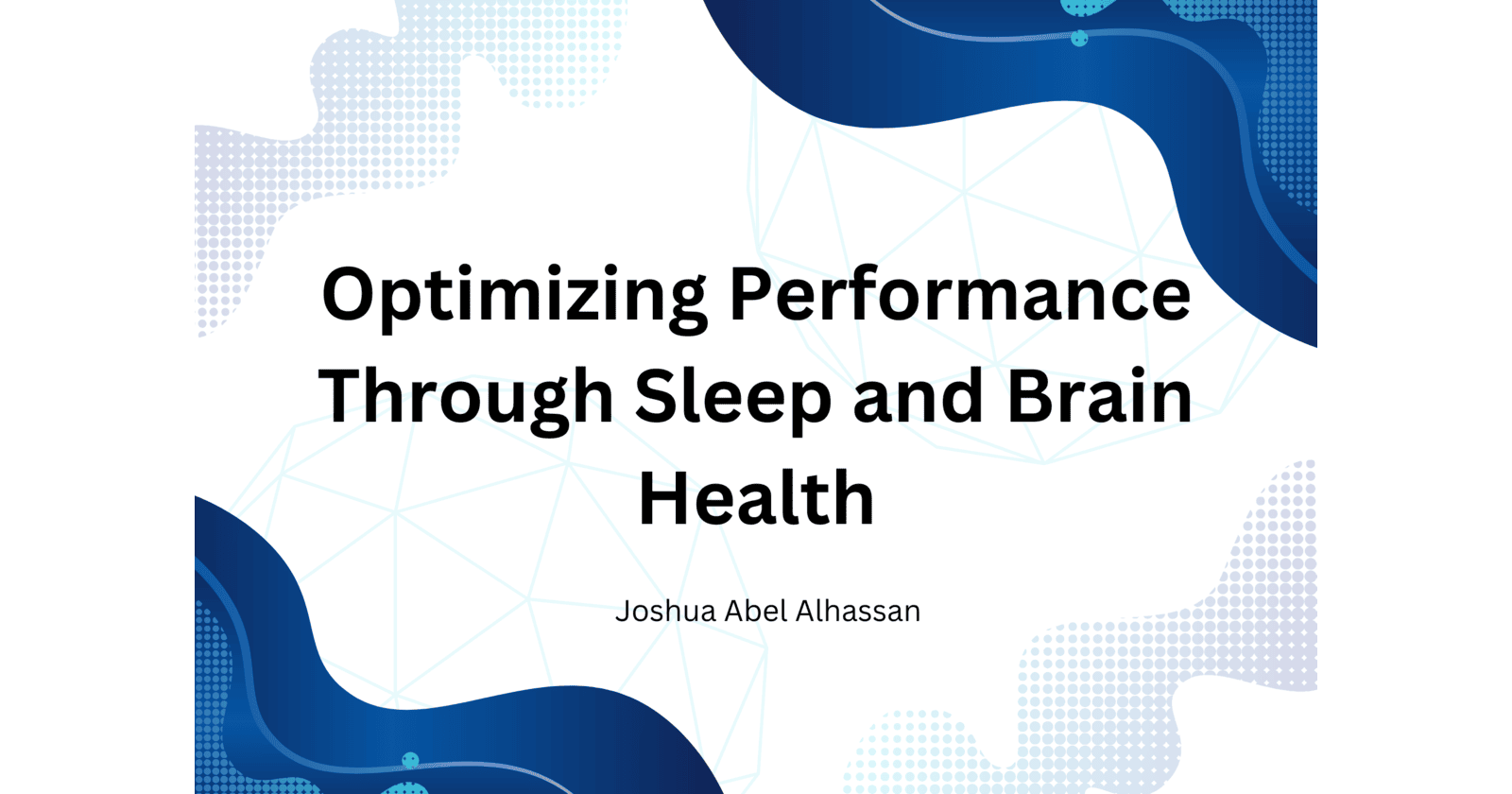Optimizing Performance Through Sleep and Brain Health
 Joshua Alhassan
Joshua Alhassan
Overview
This article is an excerpt from the Contejas Code Podcast, with Tejas Kumar featuring Michelle Bakels, Program Director at G2i as the guest on “How to Optimize Developer Health, Burnout Recovery, and Performance”.
This hiring community - G2i, connects vetted developers with companies needing talent. The discussion in this episode centers around the importance of developer health, addressing burnout, recovery strategies, and optimizing performance through effective health protocols.
G2i helps developers and companies by ensuring a thorough vetting process and matching skilled developers with suitable job opportunities. Michelle Bakels, who also leads the Developer Health Initiative at G2i, organizes the annual React Miami conference and is passionate about improving developer well-being.
A key focus of the episode is G2i’s Developer Health Operating System (OS), a framework designed to optimize developer health outcomes. This system guides individuals, teams, and organizations, helping them track and improve health outcomes with a structured workbook. The Developer Health OS is the product of collaboration with industry experts and healthcare professionals, with G2i investing significant resources to make it a practical tool for the industry.
The conversation touches on the critical aspects of developer health, such as recognizing burnout, recovery techniques, preventing burnout, and enhancing performance through strong health protocols. The discussion is especially relevant for individuals who have experienced burnout or work in high-pressure environments, as well as team leaders responsible for ensuring the well-being of their developers.
To watch the full episode on YouTube, click here
This article explores strategies to improve personal performance and prevent burnout, focusing on the importance of brain health, sleep, and task prioritization. The conversation revolves around building practical methods to ensure long-term well-being while maintaining productivity in fast-paced work environments. Below is a detailed report on the main topics discussed.
Introduction to Burnout Prevention
The discussion in the podcast began by addressing the steps to avoid burnout once a developer has already taken action to optimize their time and performance. One of the core areas is slowing down and building a "time budget" that allows for structured work. While slowing down can seem unreasonable and illogical in high-demand jobs, deliberate time management can lead to better results and reduce stress.
The Essentialism Plan
The essentialism plan is introduced as a tool to help individuals focus on high-priority tasks. The plan operates on the principle of differentiating between "offensive" and "defensive" work:
Offensive Work: Tasks that move you closer to your primary goals, e.g., drafting a report, launching a project, or developing a strategy.
Defensive Work: Tasks that are necessary but don't directly contribute to the achievement of long-term goals, e.g., answering emails, or responding to Slack messages.
This framework is critical for organizing one's work schedule effectively.
developers are encouraged to identify their major goals and break down the steps needed to achieve them into smaller, actionable items over short intervals (e.g., two weeks).
Tools for Daily Productivity
- Daily Action Plans: These serve as practical, to-do-style lists plan. You can prefer a bullet-point list where you select tasks from the plan for that day, or you can choose to use a time-blocking method, scheduling specific tasks between designated hours. Both methods focus on flexibility, allowing individuals to choose the structure that works best for them.
These tools help prevent burnout by promoting clarity and ensuring that individuals focus on tasks that truly matter. By limiting the number of tasks on the list, they can avoid feeling overwhelmed.
Offensive vs. Defensive Work Framework
Offensive work - deep, focused efforts that move the needle on projects, require maximum concentration and limited time.
Defensive work - administrative tasks such as handling communications and attending meetings, often consume a significant portion of the workday but are less cognitively demanding.
To prevent burnout, setting limits on the amount of deep, focused work in a day can help avoid overexertion. Defensive tasks don’t require as much mental effort.
Managing Interruptions and Communication
Managing interruptions, whether through Slack, email, or meetings can significantly draw one back from productivity.
To manage these interruptions, questioning yourself whether the pressure to respond immediately is internal or external. Often, the expectation to be available all the time is self-imposed. By delaying responses to non-urgent communications (e.g., waiting one or two hours before replying to an email or Slack message), developers can better control their schedules and stay focused on offensive work.
The Role of Company Culture
Company culture can influence the level of interruptions employees face. At larger organizations, there can be an expectation to constantly monitor emails and communications, which contributes to an environment where focus is difficult to maintain. By pushing back on these expectations and testing boundaries such as checking emails less frequently developers can potentially reclaim a greater portion of their workday for productive, focused efforts.
Conclusion
In conclusion, optimizing productivity and preventing burnout requires a balance between offensive and defensive work. Prioritizing offensive tasks, those that directly contribute to your long-term goals, ensuring that you're consistently making progress. At the same time, defensive tasks like emails and meetings, while necessary, should be managed in a way that doesn't interrupt your progress. Implementing periods of deep focus can significantly improve performance, but it's essential to set limits to avoid burnout.
Additionally, managing interruptions by delaying non-urgent communications helps maintain focus and encourage and promote a more sustainable and productive work routine. By mastering this balance, developers can achieve efficiency in both their professional and personal lives.
P.S: This article is an excerpt from “How to Optimize Developer Health, Burnout Recovery, and Performance” from the <Contejas /> podcast. Listen to the full episode on Spotify and Apple. Don’t forget to follow, like, and share with your network!
Subscribe to my newsletter
Read articles from Joshua Alhassan directly inside your inbox. Subscribe to the newsletter, and don't miss out.
Written by

Joshua Alhassan
Joshua Alhassan
Frontend Developer, Community Manager volunteer at Edustipend, DSA community manager at Nexascale, BeerJs Lokoja community lead, Co-lead GDG Lokoja.